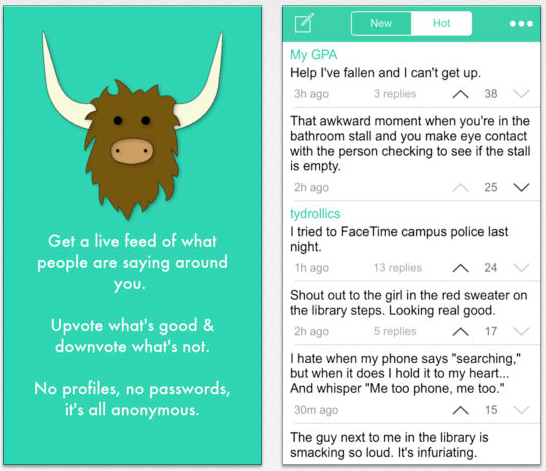Kik, the Ontario, Canada-based messaging app uses usernames, not phone number, as the basis for the accounts. Recently, the platform has begun to increase the range of interactions available through the app, in an effort to appeal to brands.
Last year, Kik implemented promoted chats to allow users to opt-in and connect with brands in a more engaging way. Several brands including NBC News and MTV, have created accounts and post popular stories, quizzes and relevant for consumers who opted in. For NBC, Kik users will send a message with a relevant keyword like "politics," to receive news updates from the publisher (see example below).
Furthermore, Kik users can use promoted chats to identify brands that are currently running promotions, and strike up a conversation with the brand. Allowing for one-on-one marketing, Kik now allows brands to participate in chat-style dialogue with the consumer. Through these new updates, Kik's value is in the earned media produced when users share content - an engagement study shows that Kik messenger sees as much user engagement as Facebook.


Kik continues to create opportunities for brands to connect with consumers. Most recently, the company has ventured into the realm of QR Codes in the hopes of bringing WeChat's success in China, to the U.S. QR Codes hope to provide context for a relationship between the brand and consumer - providing relevant promotions, information
Kik isn’t just focused on connecting brands — though that’s where most of the revenue potential lies. The company introduced music-themed communities last month, and Kik Codes will help users connect with other users in the same way that Snapchat, WeChat and other chat apps use QR codes to add friends.
Beyond just connecting, QR codes also provide context for a relationship — for example what kind of a code did that person scan, and what location did they scan it from. Using that context, a Kik bot operated by a brand can send the right response to a user. That could mean providing a pizza discount, directions to a store, exclusive tickets, or more. More importantly, it opens a dialogue for future opportunities, too.
Read more: http://techcrunch.com/2015/09/08/chat-app-kik-introduces-qr-codes-to-connect-users-and-brands/
http://www.clickz.com/clickz/column/2403229/3-reasons-why-brands-are-flocking-to-chat-app-kik

